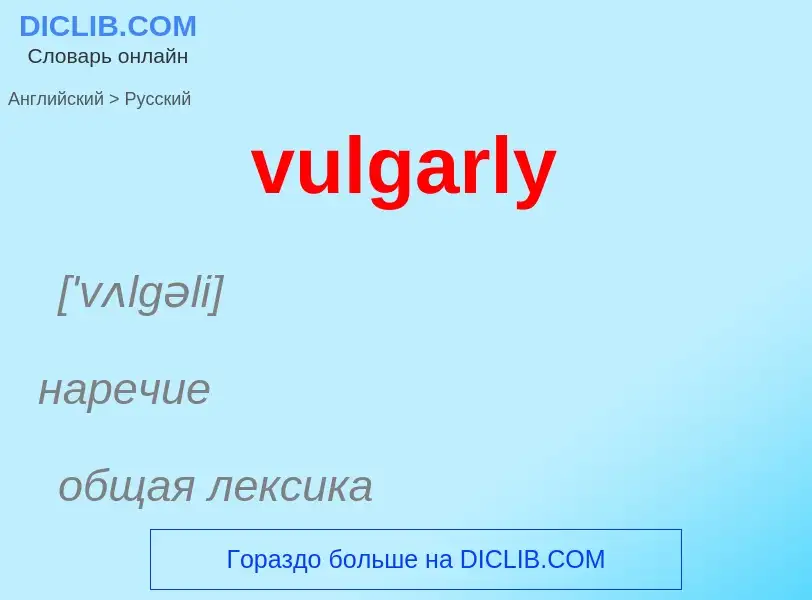Tradução e análise de palavras por inteligência artificial ChatGPT
Nesta página você pode obter uma análise detalhada de uma palavra ou frase, produzida usando a melhor tecnologia de inteligência artificial até o momento:
- como a palavra é usada
- frequência de uso
- é usado com mais frequência na fala oral ou escrita
- opções de tradução de palavras
- exemplos de uso (várias frases com tradução)
- etimologia
vulgar - tradução para russo
['vʌlgəli]
наречие
общая лексика
вульгарно
грубо
пошло
обычно
повсеместно
широко
['vʌlgə]
общая лексика
простой
широко распространенный
Смотрите также
прилагательное
общая лексика
вульгарный
грубый
развязный
противоречащий общепринятым нормам поведения
лишённый тонкости
изящества
пошлый
мещанский
неоригинальный
заурядный
избитый
тривиальный
относящийся к простым людям
народный
общенародный
национальный
родной (о языке)
широко распространённый
простонародный
плебейский
народный, родной (о языке)
широко распространенный, общий (об ошибке и т. п.)
синоним
антоним
существительное
['vʌlgə]
общая лексика
(the vulgar) [арх., презр.] толпа
чернь
устаревшее выражение
простонародье
синоним
Definição
Wikipédia
In the study of language and literary style, a vulgarism is an expression or usage considered non-standard or characteristic of uneducated speech or writing. In colloquial or lexical English, "vulgarism" or "vulgarity" may be synonymous with profanity or obscenity, but a linguistic or literary vulgarism encompasses a broader category of perceived fault not confined to scatological or sexual offensiveness. These faults may include errors of pronunciation, misspellings, word malformations, and malapropisms. "Vulgarity" is generally used in the more restricted sense. In regular and mostly informal conversations, the presence of vulgarity, if any, are mostly for intensifying, exclaiming or scolding. In modern times, vulgarism continues to be frequently used by people. A research paper produced by Oxford University in 2005 shows that the age group of 10–20 years old speak more vulgarity than the rest of the world's population combined. The frequent and prevalent usage of vulgarity as a whole has led to a paradox, in which people use vulgarity so often that it becomes less and less offensive to people, according to The New York Times.

